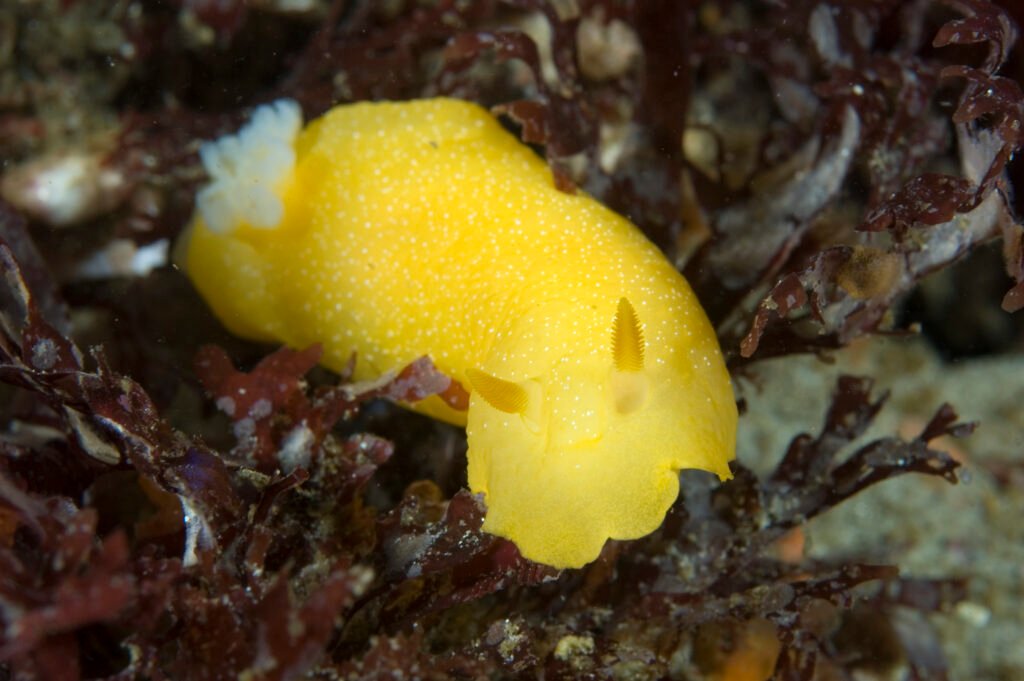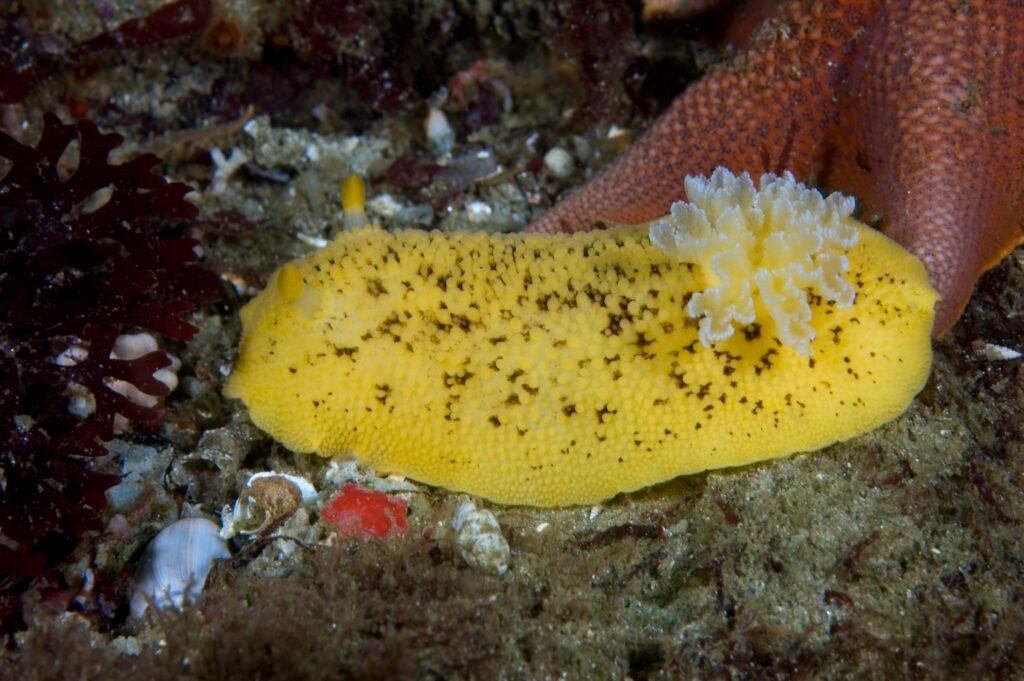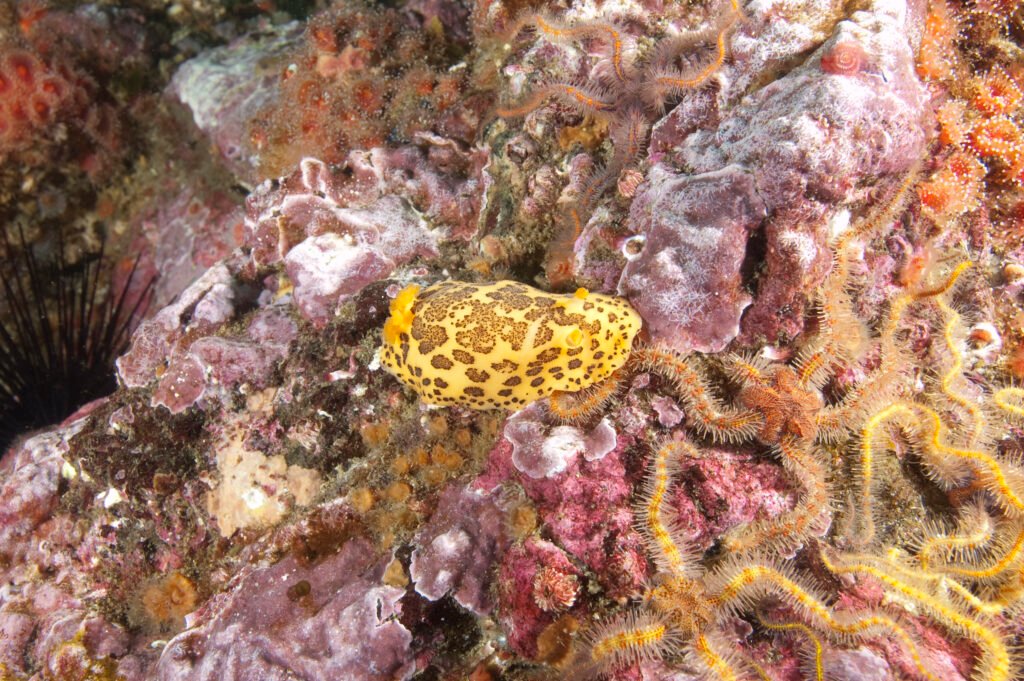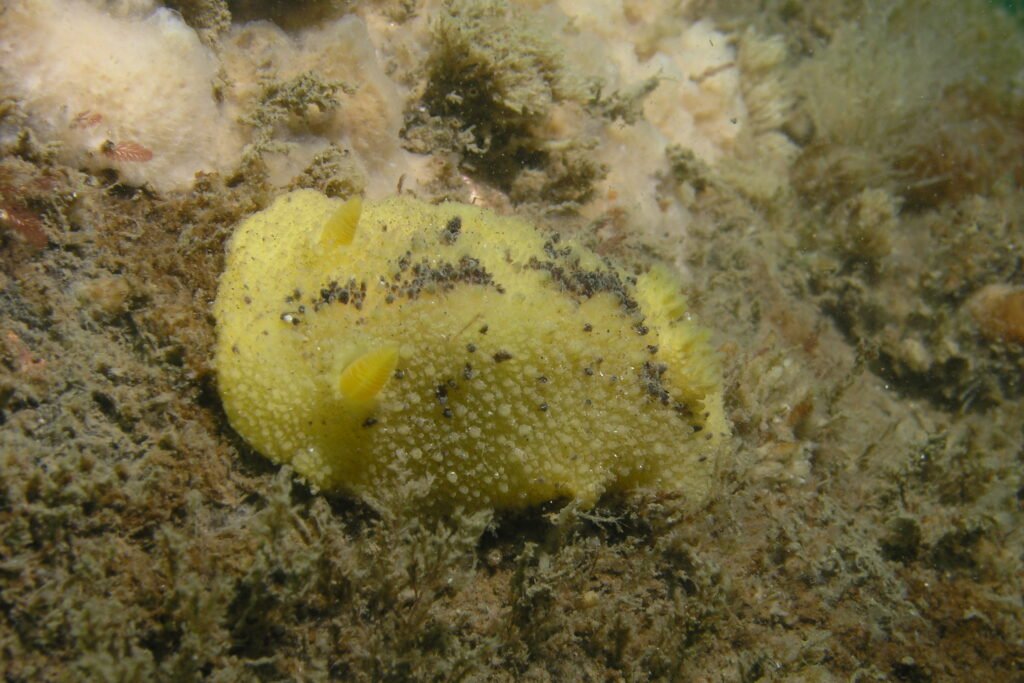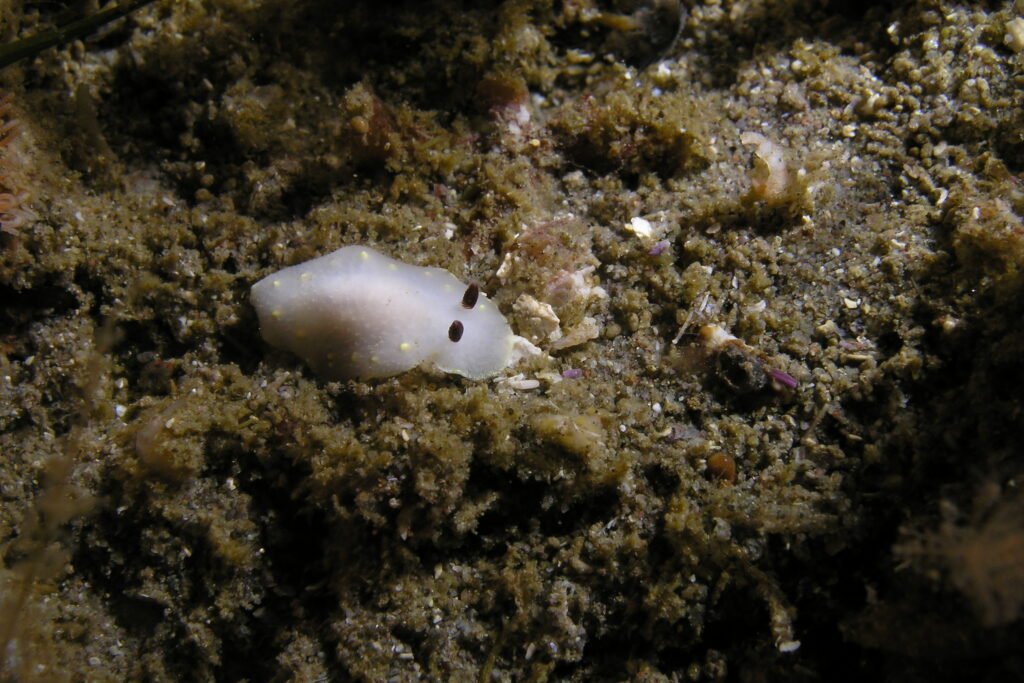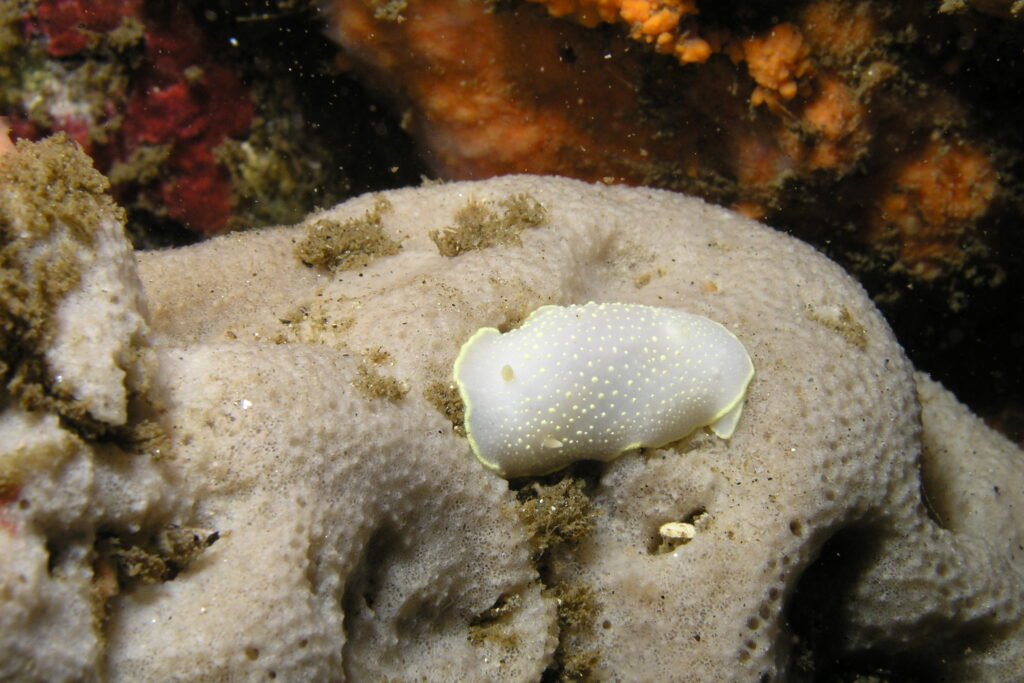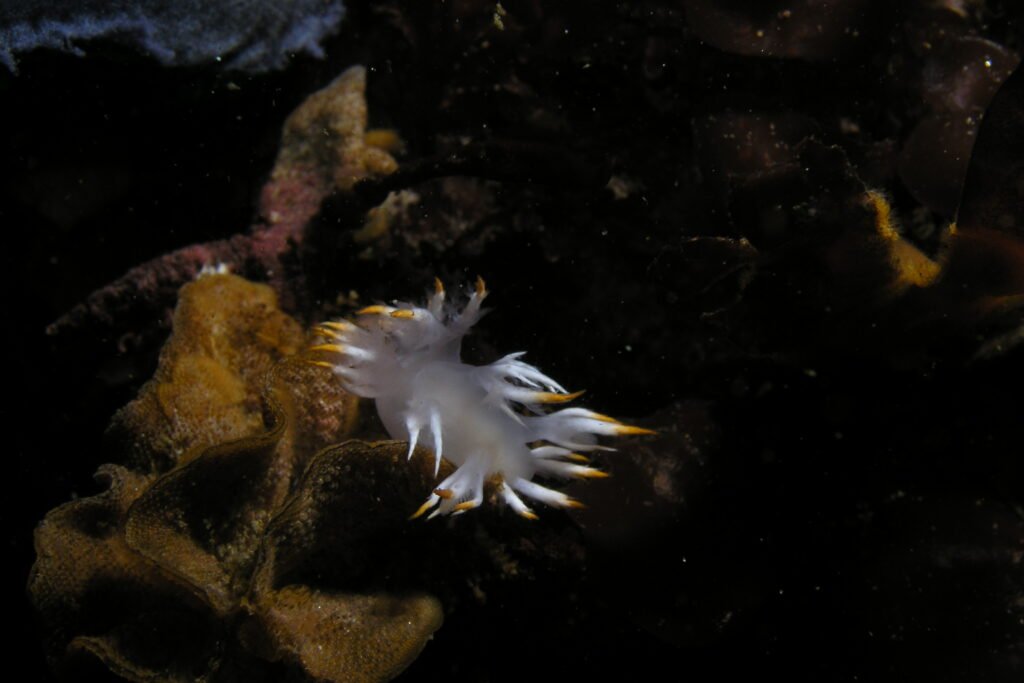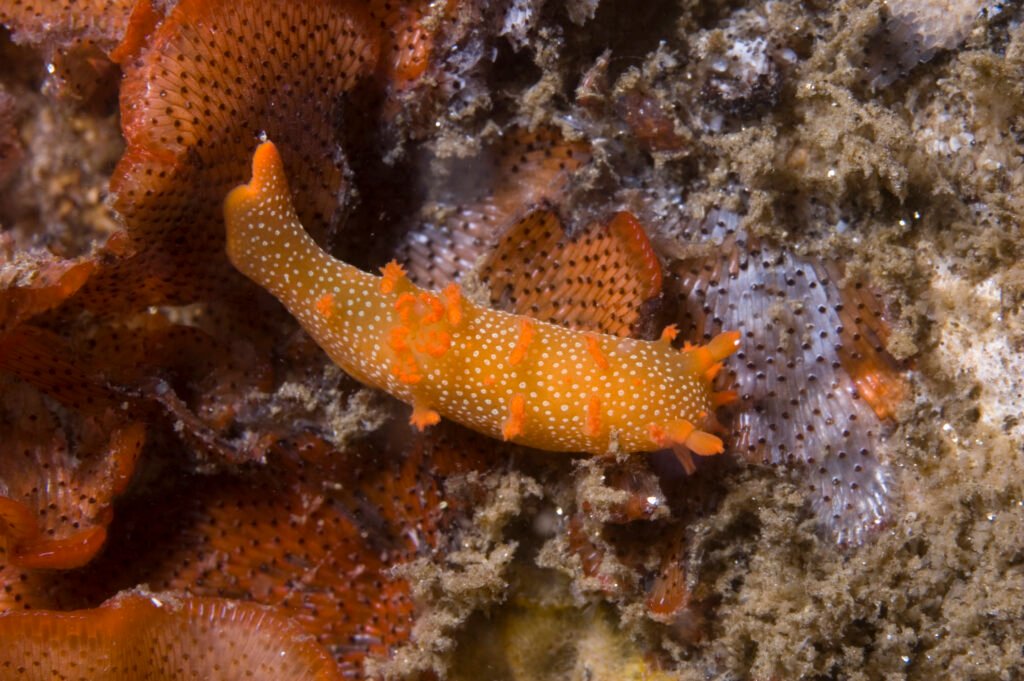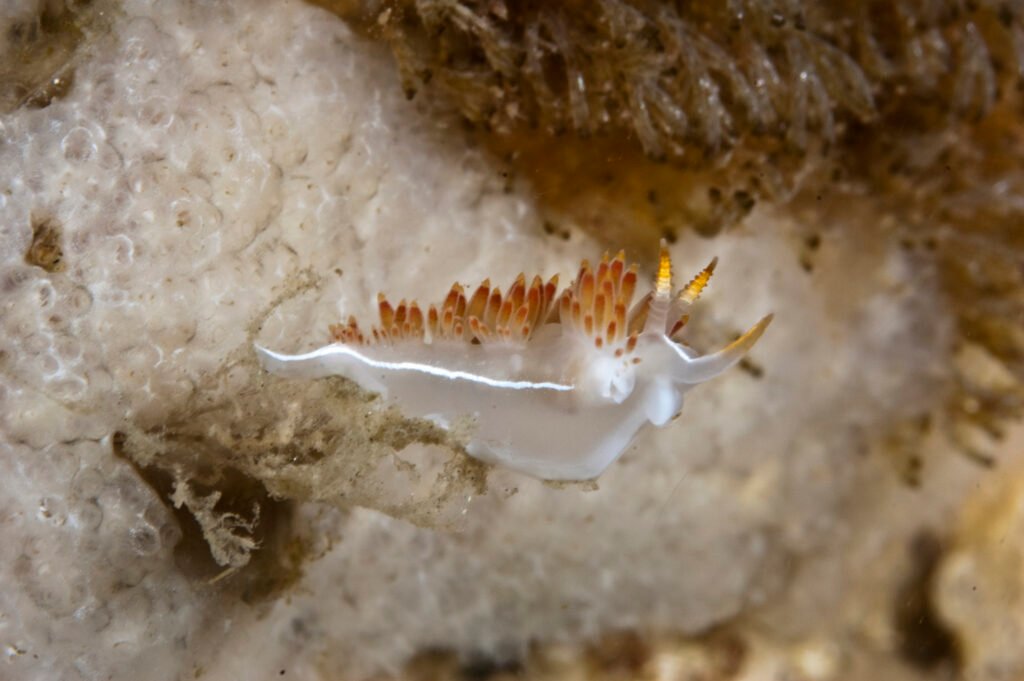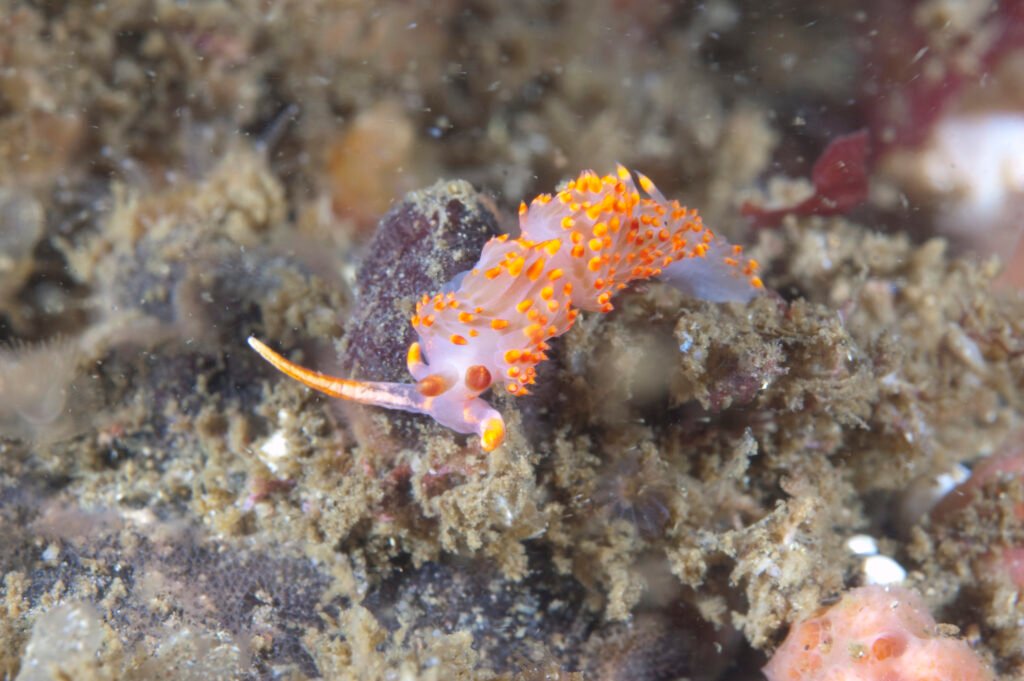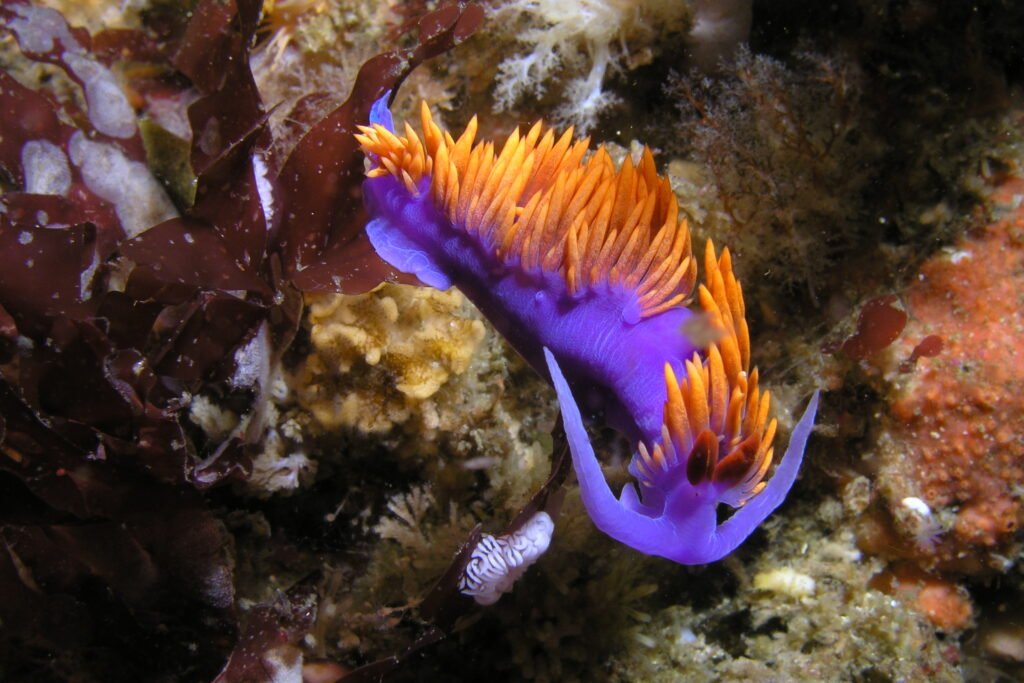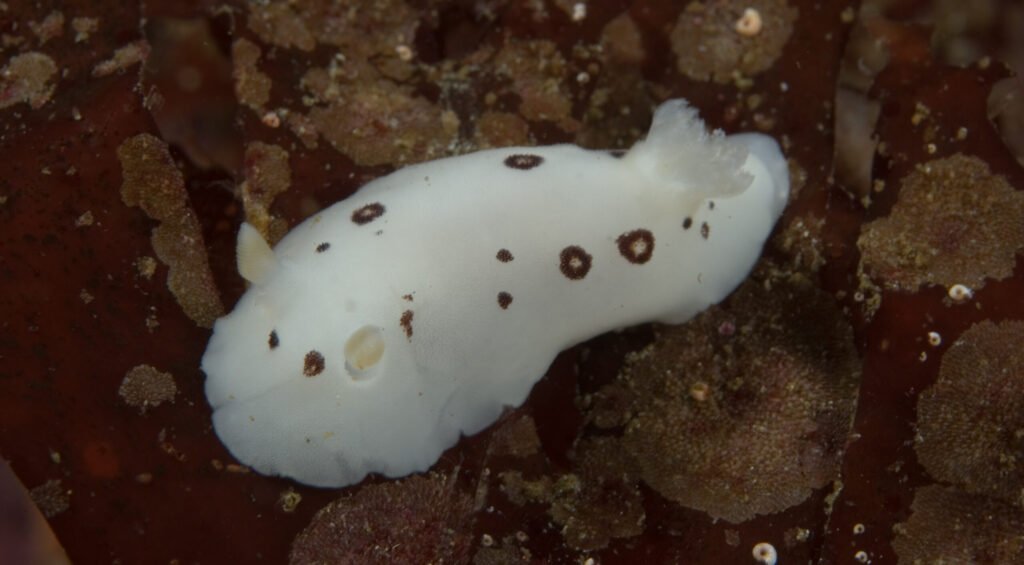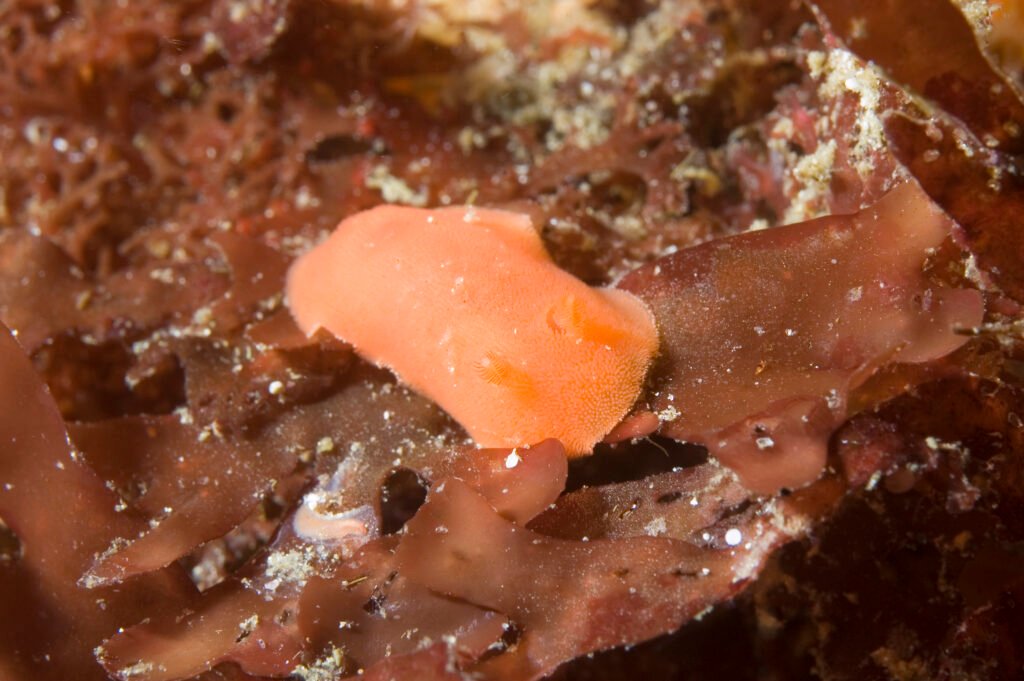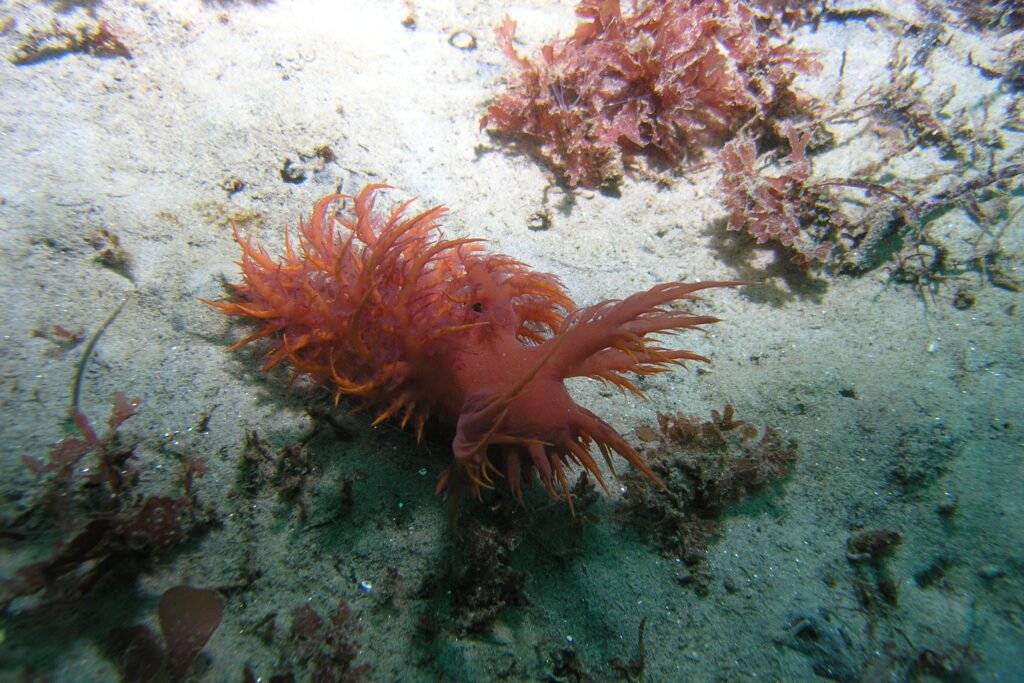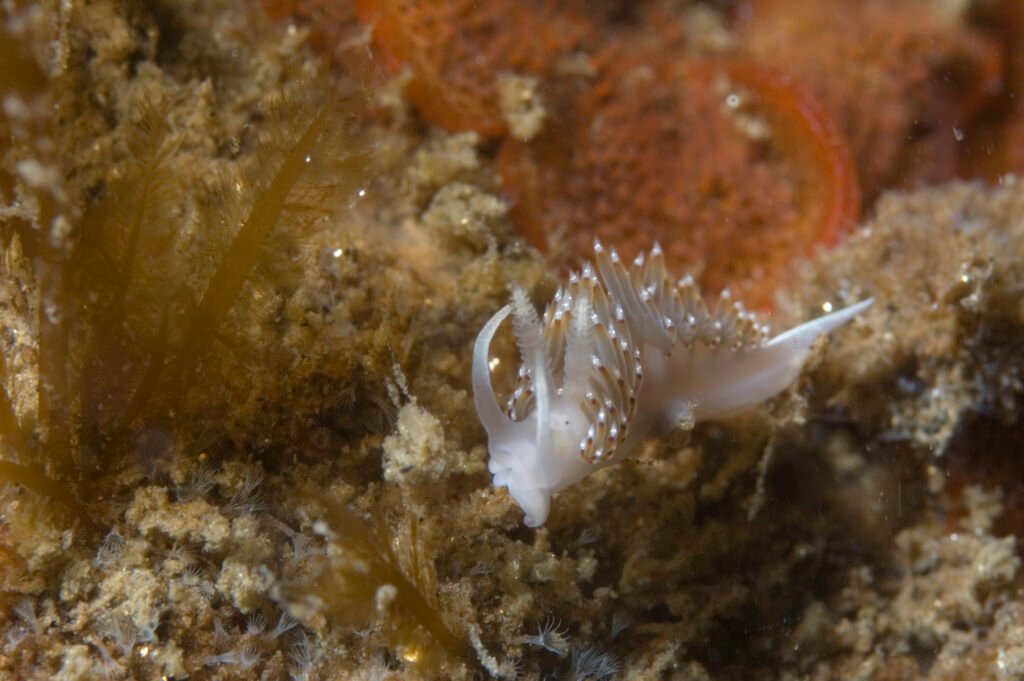Physical Description
The white-spotted dorid, scientifically known as Doriopsilla fulva, exhibits a ground color that ranges from white to pale yellow, occasionally appearing dark brown. Its dorsum features low tubercles, each adorned with an apical white dot, while no white dots are present elsewhere on the dorsum. The rhinophores are yellow in color and possess 10-12 lamellae. Branchial plumes, numbering 5, are tripinnate and appear whitish to very pale yellow, spreading horizontally when fully expanded. Labial tentacles are rudimentary. Doriopsilla fulva typically measures around 25mm in length, although specimens may exceed 70mm.
Habitat and Geographical Range
White-spotted Dorids inhabit the eastern Pacific coast.
What They Eat and How They Breed
While specific dietary habits and breeding behaviors of White-spotted Dorids are not extensively documented, they likely feed on various marine organisms found in their habitat and reproduce through typical nudibranch breeding mechanisms.
Similar Nudibranchs
There are several species of yellow dorid nudibranchs found in Monterey. The white-spotted dorid is most easily identified by its white gills and white spots on the tips of some of its tubercles. For species often mistaken for the white-spotted dorid, check out these links.
Sea Lemon
Explore the fascinating Sea Lemon, featuring a vibrant color range and distinctive tubercles, found along the eastern Pacific coast.
Mulliner’s Dorid
Explore Mulliner's Dorid, a large nudibranch with distinctive yellow features and irregular brown blotches on its mantle, found along the eastern Pacific coast.
Monterey Dorid
Discover the striking Monterey Doris, a large yellow dorid species with dark pigmented tubercles, commonly found along the rocky shores of the eastern Pacific coast.
